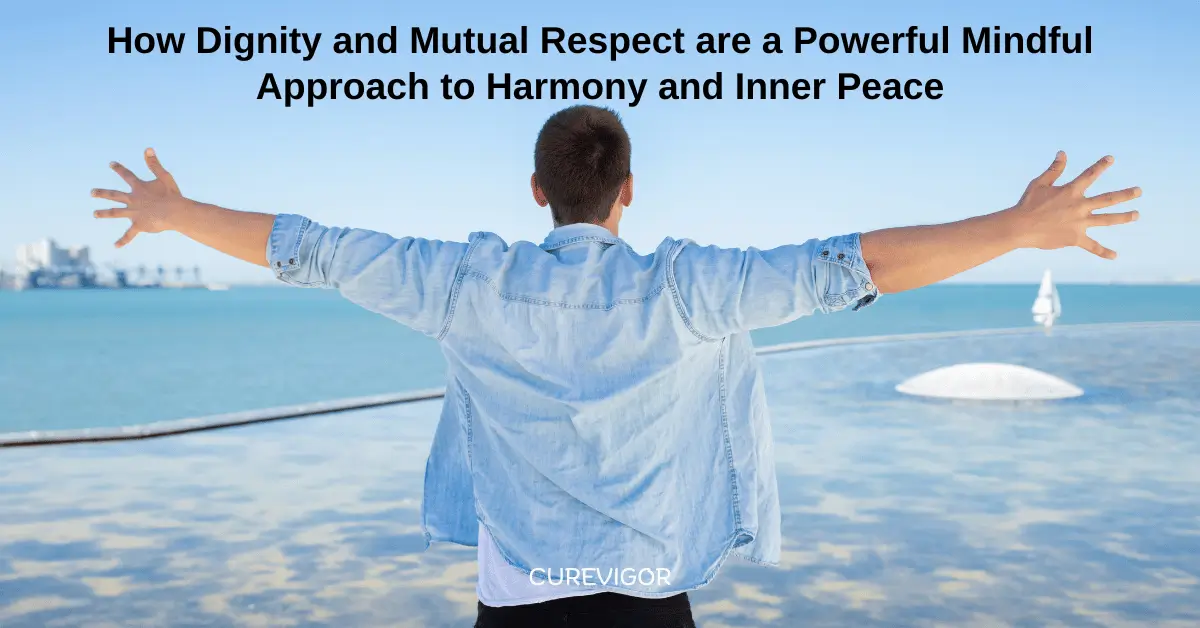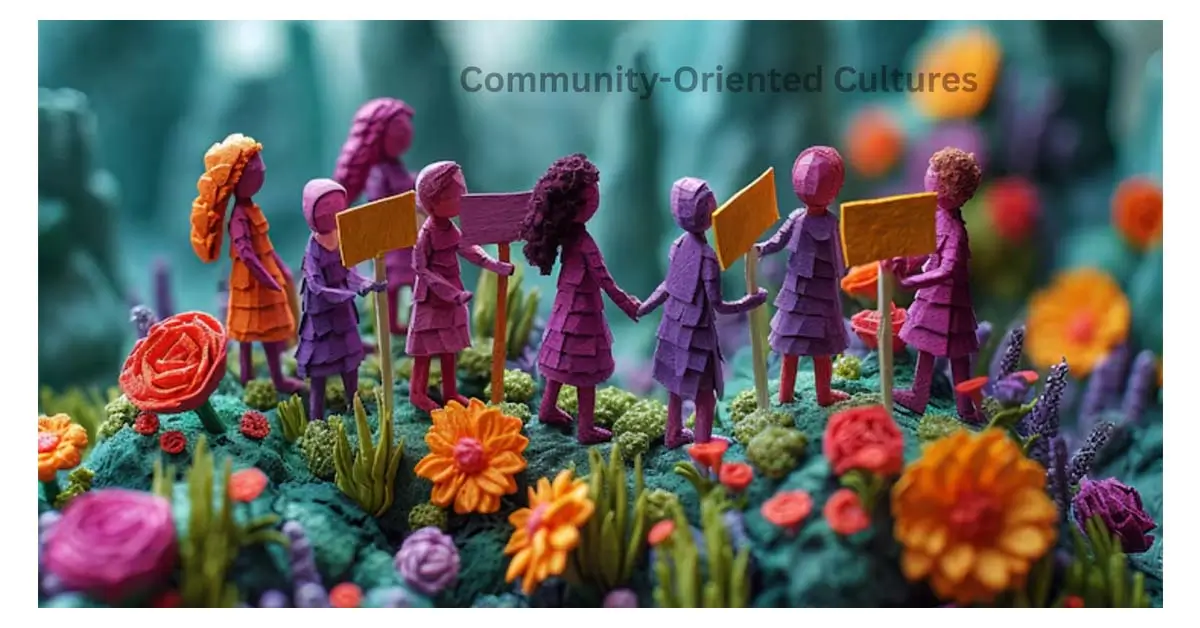Explore dignity and mutual respect as a mindful approach to harmony, empathy, and self-awareness. Unlock powerful tools for peace, confidence, and connection.
Thank you for reading this post, don't forget to subscribe!In a world filled with distractions, disagreements, and digital noise, one thing remains universal — the human need for dignity and mutual respect.
These aren’t just lofty ideals; they’re the emotional foundations that hold relationships, communities, and even nations together.
How Dignity and Mutual Respect are a Powerful Mindful Approach
When we treat others with understanding and honor ourselves with compassion, we open the door to true inner peace.
Dignity is about recognizing worth — your own and that of others. Mutual respect is about protecting that worth through mindful words and actions.
Together, they form a powerful approach to living harmoniously in a world that often forgets the value of empathy.
This mindful path doesn’t just transform how we connect with others — it reshapes how we experience ourselves.
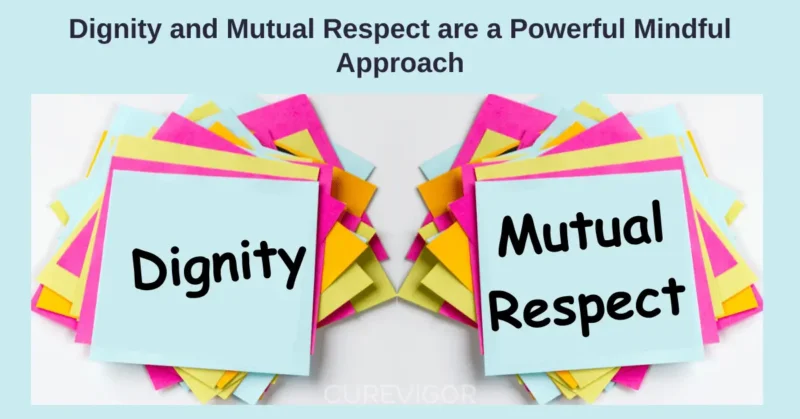
So, take a deep breath, slow down, and explore how dignity and mutual respect can help you build a life filled with calm, clarity, and genuine connection.
Understanding the True Meaning of Dignity and Mutual Respect
Dignity and mutual respect go hand in hand — one cannot exist without the other. Dignity means recognizing the inherent worth of every person, including yourself.
It’s about seeing beyond social status, culture, or belief systems to acknowledge that all human beings deserve compassion, fairness, and kindness. When we honor dignity, we affirm that everyone has the right to be treated with care and equality.
Mutual respect, on the other hand, is how we bring dignity to life. It’s the conscious act of valuing others’ feelings, opinions, and boundaries, even when we disagree.
It means listening without judgment and responding with empathy instead of ego. Respect doesn’t demand perfection — it asks for understanding and patience.
True dignity and mutual respect are not passive traits; they are active, daily practices. They require mindfulness — being aware of how our words and actions affect others.
Each time you speak kindly, listen sincerely, or offer help without expecting something in return, you strengthen the bond of human connection.
In essence, dignity is the foundation, and respect is the structure built upon it. Together, they form the architecture of peace — in relationships, workplaces, and within ourselves. Living by these principles creates emotional stability, trust, and a deep sense of harmony that radiates outward.
The Psychology Behind Dignity and Mutual Respect
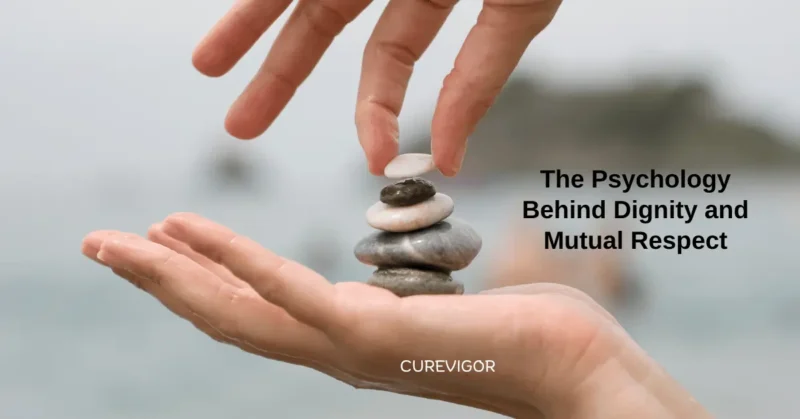
Psychologically, dignity and mutual respect satisfy one of our most fundamental human needs — the need for recognition and belonging. When people feel respected, they experience a powerful sense of safety and validation.
This triggers the release of positive neurotransmitters like serotonin and oxytocin, which reduce stress and enhance happiness.
From a psychological standpoint, respect is deeply tied to self-worth. When someone treats us with dignity, our brain interprets it as a sign of acceptance and value. This builds confidence, emotional balance, and motivation.
Conversely, disrespect can cause anxiety, defensiveness, and social withdrawal, as it threatens our inner sense of identity.
Mutual respect also shapes how we perceive others. Psychologists explain that when we approach people with empathy, our brain mirrors their emotions — a phenomenon known as emotional resonance.
This means that respect not only improves our relationships but also rewires our mindset for compassion and understanding.
On a collective level, dignity and respect foster trust within teams, families, and communities. They reduce conflict by promoting open communication and emotional intelligence.
People who feel respected are more likely to collaborate, forgive, and support one another — creating an atmosphere of psychological safety and harmony.
In short, the psychology of dignity and mutual respect proves that kindness is not weakness; it’s wisdom in action. By practicing mindfulness and empathy, we nourish the brain, calm the mind, and strengthen our shared humanity.
How to Practice Dignity and Mutual Respect in Everyday Life
Practicing dignity and mutual respect daily doesn’t require grand gestures — it starts with small, conscious actions. Every interaction offers an opportunity to uplift others and affirm their worth. The key is awareness: noticing how your tone, words, and body language affect those around you.
Begin with active listening. When you truly listen, you communicate that the other person matters. Put away distractions, make eye contact, and be fully present. Listening is one of the most powerful forms of respect.
Next, speak kindly and honestly. Words hold energy — they can heal or harm. Choose words that build rather than break. Even during disagreements, stay calm and focus on understanding rather than winning. Respectful communication keeps relationships strong and balanced.
Show respect through inclusivity and empathy. Whether it’s at work, school, or home, treat everyone as equal contributors. Value different perspectives and acknowledge the unique strengths of each person. When people feel included, they respond with trust and loyalty.
Maintain personal boundaries and honor those of others. Dignity thrives in relationships where independence is respected. Allow people space to make their own choices, even if you disagree. Mutual respect grows when we honor individuality.
Lastly, practice self-respect. You can’t extend true dignity to others if you neglect your own. Care for your well-being, stand by your principles, and be kind to yourself. The way you treat yourself sets the tone for how others will treat you.
Small acts — a smile, a kind word, a moment of patience — may seem simple, but they create ripples of positivity that shape an entire culture of dignity and mutual respect.
Why Mutual Respect Is the Foundation of Every Peaceful Society
The Social Power of Respect
A peaceful society doesn’t emerge by chance; it grows from shared respect. When individuals listen and empathize, communities flourish. Schools, businesses, and governments built on respect naturally promote fairness and justice.
Mutual Respect as a Tool for Conflict Resolution
Respect doesn’t mean agreement. It means acknowledging another’s viewpoint without hostility. This mindset turns conflict into collaboration. In workplaces, for instance, respectful dialogue can turn disagreement into innovation — transforming division into growth.
The Mindful Connection Between Respect, Dignity, and Inner Peace
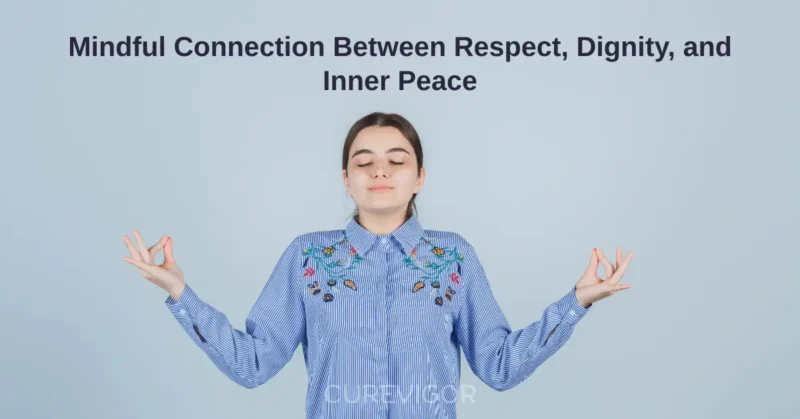
How Mindfulness Strengthens Mutual Respect
Mindfulness invites awareness of thoughts, emotions, and actions. When we act mindfully, we respond rather than react.
This self-awareness nurtures respect for ourselves and others. Instead of rushing to judgment, we pause and seek understanding.
Dignity as the Bridge to Inner Peace
Dignity is the acknowledgment of inherent worth — not something earned, but recognized. When dignity is upheld in relationships, peace naturally follows. People who feel dignified are less defensive, more open-hearted, and emotionally grounded.
Building Emotional Intelligence to Deepen Mutual Respect
Understanding Emotional Intelligence (EQ)
Emotional intelligence is the ability to identify and manage emotions — both your own and others’. It consists of empathy, self-awareness, and social skills, all essential for remarkable mutual respect.
EQ and Respect in Action
A leader who practices EQ listens actively, recognizes others’ strengths, and communicates with clarity. In relationships, EQ helps partners navigate disagreements with patience. In short, emotional intelligence transforms respect from theory into action.
The Role of Cultural Empathy in Creating Cultures of Dignity
Respecting Diversity Through Cultural Awareness
Every culture carries its own values, language, and rhythm. Cultural empathy allows us to celebrate these differences instead of fearing them. When we understand cultural backgrounds, we foster dignity across borders.
How Mutual Appreciation Strengthens Harmony
Mutual appreciation means recognizing the unique contributions each culture brings. From traditions to art, each aspect of diversity enriches the human experience. Respecting diversity builds trust, bridging gaps that divide communities.
How Inner Peace Begins with Self-Respect and Awareness
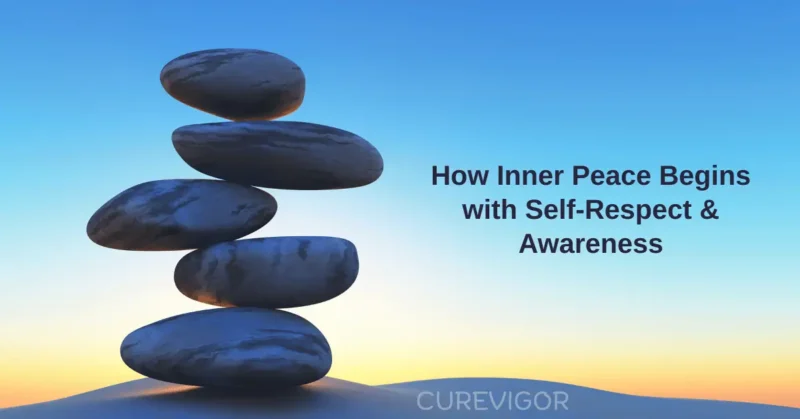
The Foundation of Self-Respect
You can’t pour from an empty cup. To practice remarkable mutual respect, you must begin with self-respect. This involves knowing your worth, maintaining healthy boundaries, and honoring your needs without guilt.
Self-Awareness as a Path to Calm
Self-awareness reveals how your behavior impacts others. It transforms defensiveness into reflection. Through this mindful practice, inner peace grows — helping you stay centered even when life challenges you.
The Relationship Between Self-Compassion and Mutual Respect
The Mirror Effect of Compassion
When you treat yourself with kindness, you naturally extend that energy to others. Self-compassion eliminates the need for comparison, freeing you from judgment and resentment. This creates the emotional space where mutual respect thrives.
Practical Ways to Develop Self-Compassion
- Replace self-criticism with curiosity.
- Forgive your mistakes
- Journal your feelings without judgment.
- Meditate daily on gratitude.
These mindful actions rewire your mindset toward empathy and acceptance.
Mindful Practices to Strengthen Self-Worth and Dignity
Daily Habits That Build Dignity
Dignity grows in small, intentional actions. Practice speaking kindly, keeping promises, and standing up for your values.
Every act of integrity strengthens your sense of worth.
Mindfulness for Emotional Stability
Simple breathing exercises, gratitude reflections, and mindful walking reduce stress and nurture clarity. A calm mind is more respectful, thoughtful, and compassionate.
Practical Ways to Cultivate Mutual Respect in Everyday Life
The Power of Small Gestures
Every “thank you,” every moment of listening, builds the foundation of respect. When we respond with empathy, we validate the humanity of others.
Small acts of kindness often carry the biggest impact.
Consistency Over Perfection
Mutual respect isn’t a one-time event; it’s a daily practice. It requires patience and humility. Even when mistakes happen, commitment to understanding keeps relationships strong.
The Power of Listening and Non-Judgmental Communication
Active Listening as a Form of Respect
Listening mindfully means being present. It’s more than hearing — it’s understanding. True listeners don’t prepare rebuttals; they absorb perspectives.
The Impact of Non-Judgmental Dialogue
Judgment shuts doors; curiosity opens them. By suspending judgment, we encourage honesty and vulnerability — two essentials for meaningful connection.
Setting Boundaries Without Losing Respect or Kindness
Why Boundaries Matter
Boundaries define where your energy begins and ends. They protect your dignity while respecting others’. Clear boundaries prevent resentment and burnout.
How to Communicate Boundaries Mindfully
Be direct but kind. Say, “I need some time to recharge,” instead of reacting out of frustration. Honesty builds mutual trust and respect.
Remarkable Mutual Respect in the Workplace and Communities
Creating a Respectful Workplace Culture
Workplaces that value respect outperform those that don’t. Employees feel safe to share ideas, knowing their opinions matter. Respect boosts morale, innovation, and retention.
Community Respect as Social Glue
Communities built on mutual respect have lower conflict and stronger unity. Neighbors collaborate instead of competing, nurturing shared growth.
How Respectful Leadership Builds Psychological Safety
Leadership Through Dignity
A respectful leader leads with empathy, not ego. They listen more than they speak and create spaces where every voice is heard.
This promotes psychological safety, allowing creativity and trust to flourish.
Encouraging Feedback and Fairness
Transparent communication shows respect. Leaders who accept feedback model humility — a key element of mutual respect in professional settings.
Promoting Inclusion and Diversity Through Mutual Understanding
Inclusion Starts with Listening
Diversity without inclusion is incomplete. Inclusion means everyone feels seen and valued.
Respect begins when we truly listen to different experiences.
Mutual Understanding as a Catalyst for Unity
When we replace assumptions with curiosity, we connect more deeply. This builds cultures rooted in equality and empathy.
The Psychology of Dignity: What It Teaches About Human Value
Dignity as Emotional Strength
Dignity empowers individuals to act from integrity, not insecurity. When you hold yourself with dignity, you respond calmly even in conflict.
Why Every Human Deserves Dignity
Dignity isn’t earned — it’s inherent. Recognizing this truth changes how we treat others, creating a fairer and more peaceful world.
Mindful Communication: A Gateway to Inner and Outer Peace
The Art of Speaking with Compassion and Clarity
Words can heal or harm. Speaking mindfully means thinking before you respond, choosing kindness over impulse.
When you express yourself with honesty and compassion, your message carries dignity. People feel respected, even in disagreement.
Mindful communication is also about clarity — ensuring your tone and intent align. A calm, sincere message creates safety in conversation, helping others feel seen and understood.
Transforming Conflict into Understanding Through Mindfulness
Conflict is inevitable, but mindfulness changes how we face it. Instead of reacting from emotion, pause. Take a breath. Observe your thoughts.
Approaching tension with curiosity instead of anger allows you to uncover hidden needs and emotions — in yourself and others. This transforms arguments into meaningful dialogue.
That’s the essence of remarkable mutual respect: choosing peace over pride.
The Science Behind Mutual Respect and Emotional Health
How Respect Influences Stress, Happiness, and Longevity
Scientific studies show that feeling respected improves both mental and physical well-being.
When you’re treated with respect, your brain releases oxytocin — the “bonding hormone” that reduces anxiety and promotes trust.
On the other hand, disrespect triggers cortisol, the stress hormone. Over time, this imbalance leads to tension and burnout.
Mutual respect, therefore, isn’t just emotional — it’s physiological. It promotes happiness, health, and longevity.
Neuroscience Insights on Empathy and Mindfulness
Neuroscience reveals that empathy activates the same brain regions as mindfulness — the prefrontal cortex and anterior cingulate cortex.
These regions are responsible for emotional regulation and compassion.
Regular mindfulness practices — like meditation and gratitude reflection — strengthen these neural pathways.
Over time, your brain becomes naturally wired for empathy, understanding, and respect.
That’s the science behind peace: train the mind to honor connection over conflict.
Cultivating Mutual Respect in Relationships and Families
Teaching Children the Value of Respect and Empathy
Children learn respect by observing adults. When parents model kindness, humility, and active listening, kids absorb those traits.
Simple acts — saying “please,” “thank you,” and “I’m sorry” — teach more than words ever could.
Encourage children to express feelings openly. Guide them in understanding how their actions affect others. These lessons build emotional intelligence early and shape compassionate, respectful adults.
Building Healthy Romantic Relationships Through Dignity and Trust
In love, respect is the foundation of intimacy. Without it, passion fades into a power struggle.
When partners honor each other’s individuality, trust deepens. Respect creates space for vulnerability — a sacred bond where both people feel free to be their authentic selves.
Relationships rooted in dignity and trust thrive because both partners grow together, not against each other.
The Spiritual Dimension of Mutual Respect and Inner Peace
How Different Philosophies View Respect and Harmony
Every spiritual tradition, from Buddhism to Christianity, teaches respect as a path to enlightenment.
- Buddhism emphasizes compassion (metta) — the respect for all living beings.
- Christianity preaches love for one’s neighbor as oneself.
- Islam upholds dignity as a divine right granted to all humans.
- Stoicism values self-control and the respect of natural law.
The message is universal: peace begins within and expands outward through mindful, respectful action.
Integrating Mindfulness and Gratitude into Daily Living
Gratitude turns respect into a lifestyle. Each time you pause to appreciate someone’s effort, you strengthen the connection.
Start your day with three simple acknowledgments — things or people you’re grateful for.
Mindfulness and gratitude together cultivate humility, joy, and balance — the emotional soil where mutual respect grows effortlessly.
Overcoming Barriers to Mutual Respect in Modern Society
Addressing Ego, Prejudice, and Miscommunication
Ego thrives on being right; respect thrives on understanding.
When we let go of ego, we make space for empathy. That’s when communication becomes collaboration.
Prejudice — whether cultural, social, or political — clouds perception. Mindfulness dismantles these filters by helping us see people as they are, not as stereotypes.
Miscommunication often stems from assumptions. Ask questions. Listen. Clarify.
Respect grows in dialogue, not debate.
How Social Media Affects Our Capacity for Respect
Social media has become both a bridge and a battlefield. The speed of online conversation often replaces empathy with reaction.
To preserve respect online, practice digital mindfulness:
- Pause before commenting.
- Assume good intent.
- Avoid sarcasm and hostility.
If used mindfully, social platforms can spread compassion faster than conflict.
The Future of Remarkable Mutual Respect in a Globalized World
Creating Cultures of Dignity in Schools and Organizations
The future of peace depends on education. When schools teach emotional intelligence, empathy, and respect, they prepare a generation that values humanity over hierarchy.
Organizations that integrate cultures of dignity foster psychological safety — where creativity, equality, and teamwork thrive.
Respect at every level builds global resilience.
Why Respect Is the Key to Sustainable Peace and Collaboration
Sustainability isn’t just environmental — it’s relational.
Global peace cannot exist without mutual respect. Collaboration between nations, communities, and individuals begins when each side feels heard and valued.
Respect is the quiet power that unites differences into shared purpose.
Final Thoughts: Walking the Mindful Path Toward Dignity and Peace
True, remarkable mutual respect is more than an idea — it’s a daily practice of mindfulness, compassion, and integrity.
It’s choosing to see the best in others, even when it’s hard. It’s responding with empathy, even when misunderstood.
When you walk this mindful path, you not only create inner peace — you also inspire a ripple of dignity throughout your community.
Pause. Listen. Respect.
In doing so, you embody the harmony this world so deeply needs.
Frequently Asked Questions on Dignity and Mutual Respect
Q. How would you describe caring with dignity and respect?
Caring with dignity and respect means recognizing the inherent worth of every person and treating them with empathy, kindness, and fairness. It involves listening without judgment, offering support without pity, and empowering others to make their own choices.
True care honors privacy, independence, and emotional comfort. When we act with dignity, we communicate that someone’s feelings and rights matter.
This kind of compassionate care creates trust and fosters meaningful human connection rooted in remarkable mutual respect.
Q. How do you respect, preserve, and maintain the dignity of your life and others?
Respecting and maintaining dignity begins with self-awareness and integrity. You preserve your dignity by setting healthy boundaries, standing by your values, and treating yourself with kindness.
For others, it means acknowledging their feelings, respecting their decisions, and avoiding behaviors that embarrass or belittle them. Speaking politely, listening actively, and offering help only when needed show true respect.
Living mindfully ensures that every action — from how you communicate to how you serve — reflects care, equality, and inner peace.
Q. How can you promote the respect and dignity of residents?
Promoting the respect and dignity of residents starts with empathy and active engagement. In caregiving environments, always address residents by name, listen to their preferences, and involve them in decision-making about their daily routines.
Respect their privacy, cultural background, and individuality. Encourage independence instead of taking over tasks unnecessarily.
When you treat residents as capable adults with unique identities, you build confidence and emotional well-being. Every respectful interaction reinforces their sense of belonging and value.
Q. How do you ensure you treat others with dignity and respect?
Treating others with dignity and respect begins with mindful communication — listening more than speaking, and responding thoughtfully. Always use courteous language, maintain eye contact, and show genuine interest in others’ feelings.
Avoid assumptions or judgments; instead, focus on understanding their perspectives. Respect boundaries, honor confidentiality, and celebrate diversity.
By practicing patience, humility, and empathy in daily interactions, you naturally create an atmosphere of mutual respect that uplifts everyone involved.
Q. Why is dignity and respect important in everyday life?
Dignity and respect form the foundation of all healthy relationships and communities. When people feel valued, they respond with trust, cooperation, and kindness.
Respect encourages open dialogue, reduces conflict, and creates harmony at work, home, and society.
Upholding dignity reminds us that everyone deserves compassion, regardless of differences. By practicing remarkable mutual respect daily, we strengthen our emotional balance and contribute to a more peaceful, inclusive world.
Q. What are simple ways to show dignity and respect to others?
You can show dignity and respect through small, consistent actions — listening attentively, saying “thank you,” and speaking kindly. Avoid interrupting or judging others, and always consider their feelings before reacting. Respect personal space, cultural values, and individual preferences.
Offer help when needed, but never take away someone’s independence. These mindful gestures may seem small, but collectively they create a powerful atmosphere of empathy, trust, and inner peace through mutual respect.
Conclusion
At its core, dignity and mutual respect are not complicated concepts — they are simple, human truths often hidden beneath our fast-paced lives.
When practiced mindfully, they become a quiet revolution, capable of healing relationships, easing stress, and restoring balance to our inner world.
Every respectful word, every compassionate choice, is a seed of peace planted in the soil of humanity. Whether in your home, workplace, or community, your actions can inspire others to respond with the same grace and kindness.
So, as you move forward, remember: harmony doesn’t begin with grand gestures — it begins with a mindful heart. Let dignity guide your actions and respect shape your words. In doing so, you’ll not only find inner peace but also help others discover theirs.
Take the First Step Toward Mindful Living!
Start practicing dignity and mutual respect today — in your words, your actions, and your thoughts. Small moments of kindness can create lasting peace within and around you.
Share your thoughts below or join the mindful wellbeing journey by subscribing for more inspiring insights on inner peace and balance!
Read more articles on Health and Wellness Tips.
You might love:

